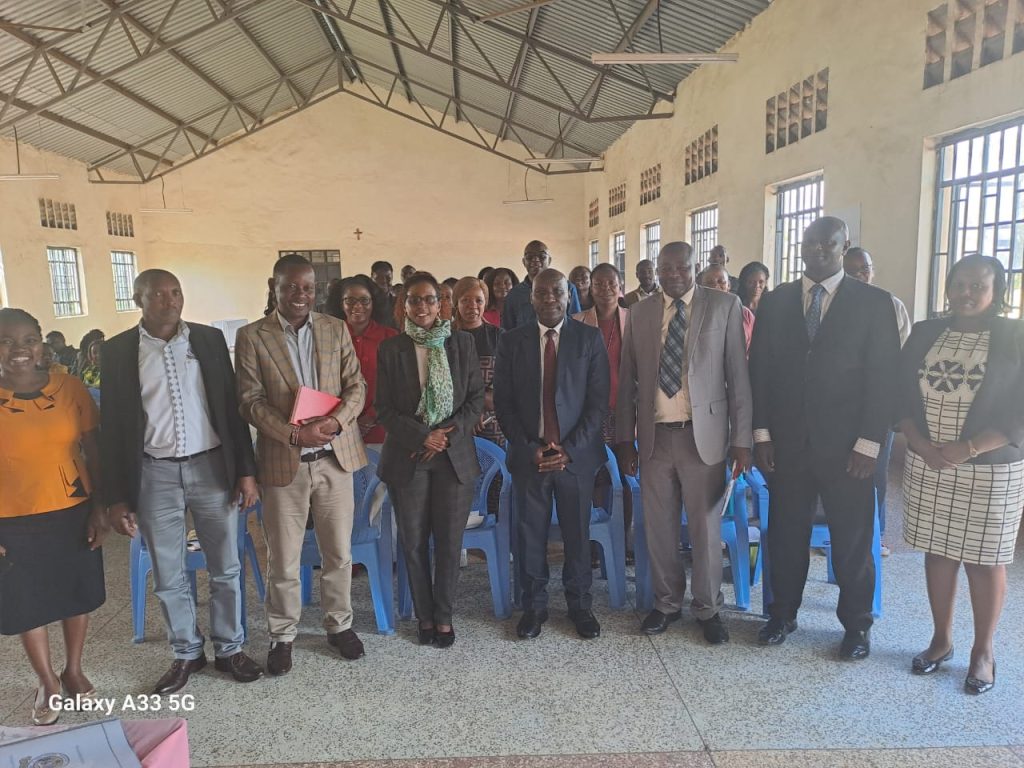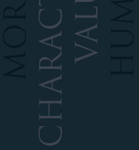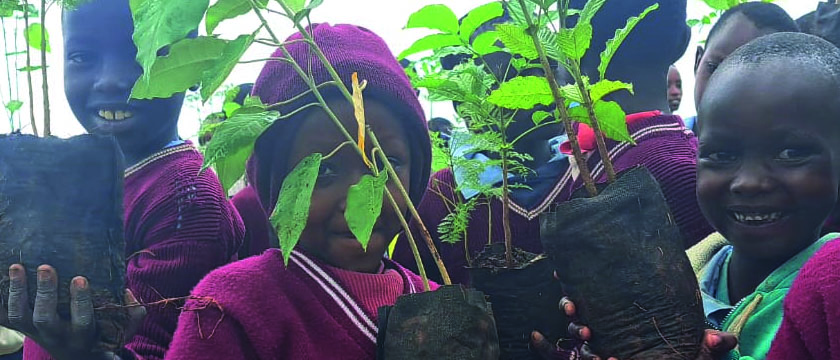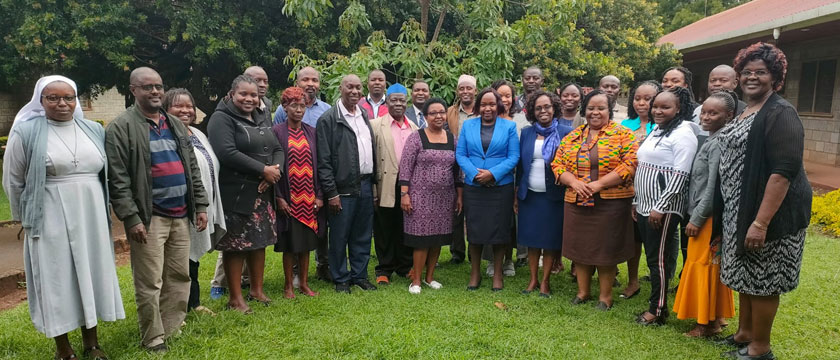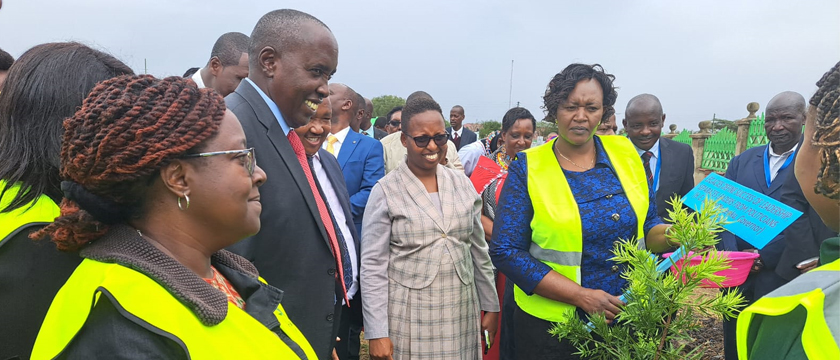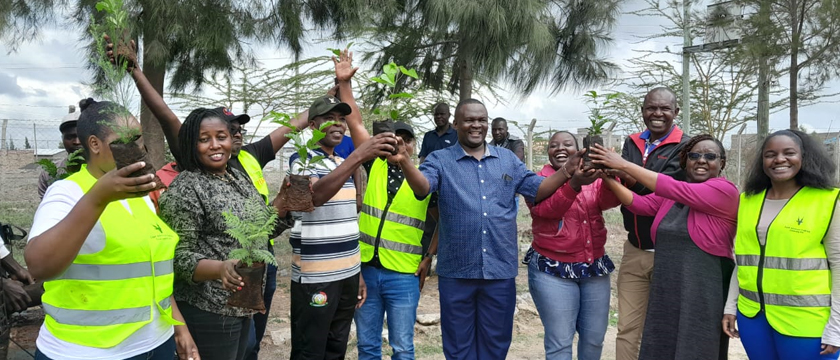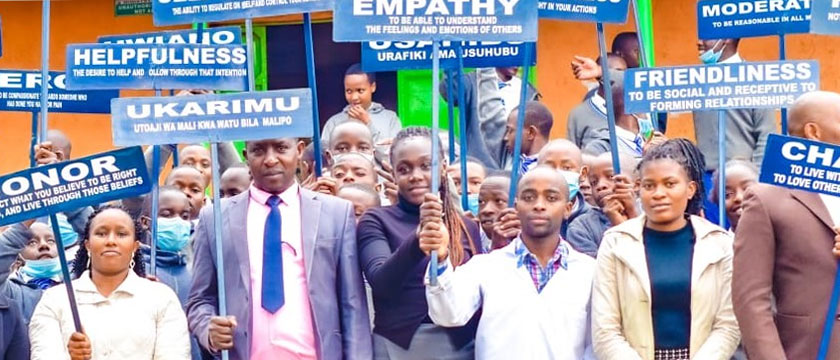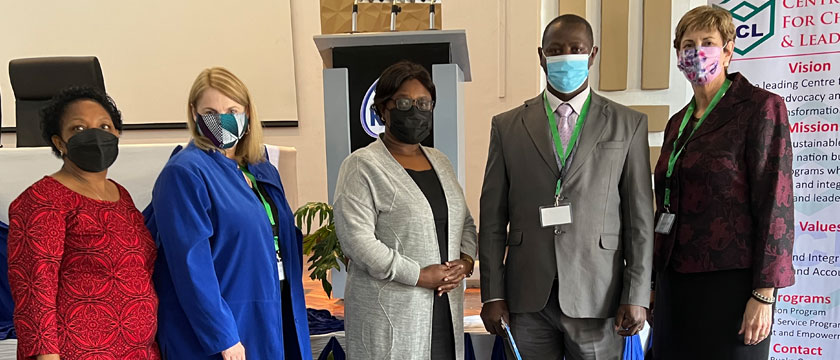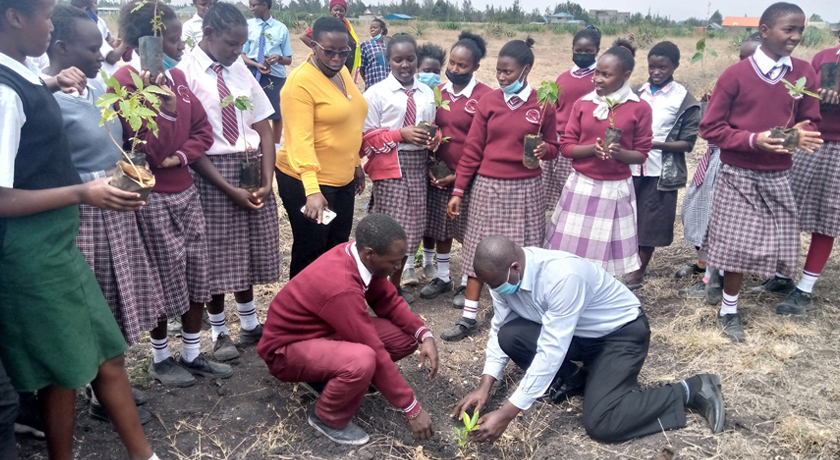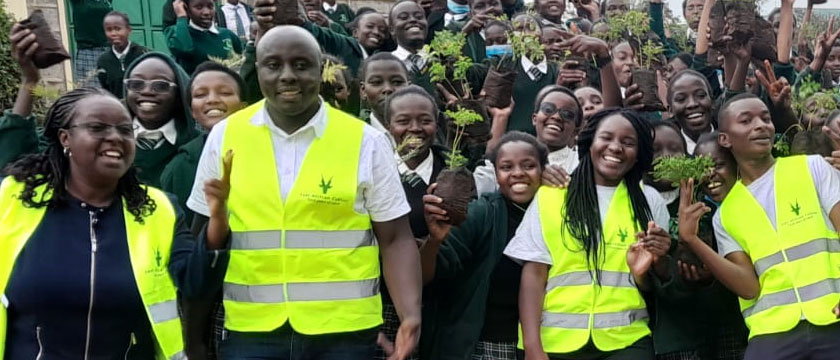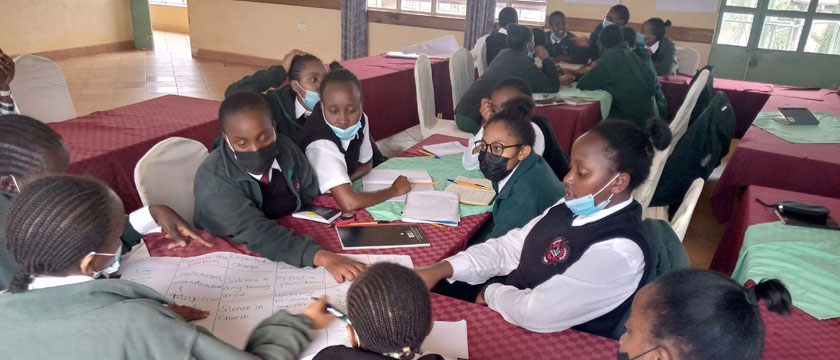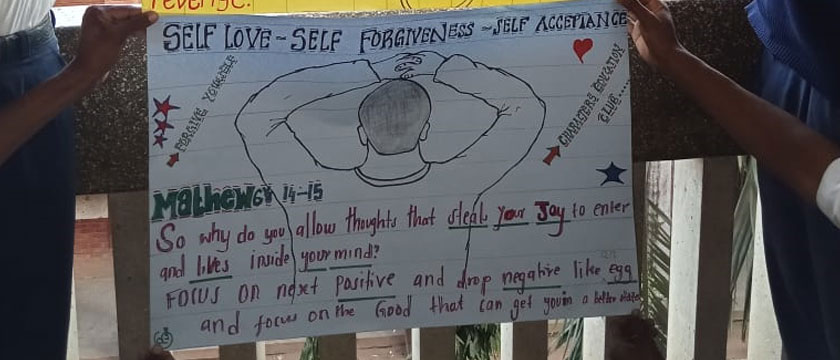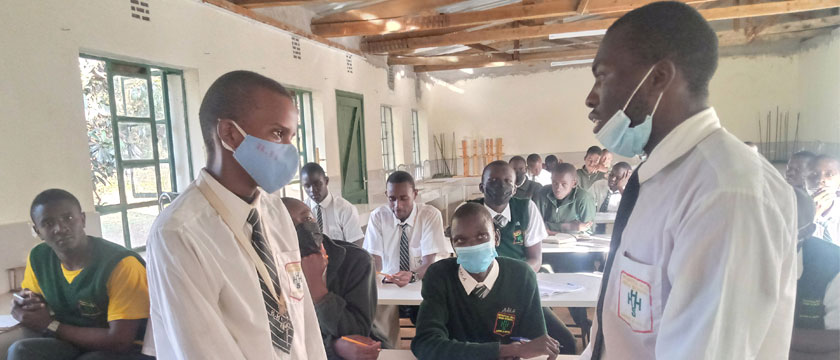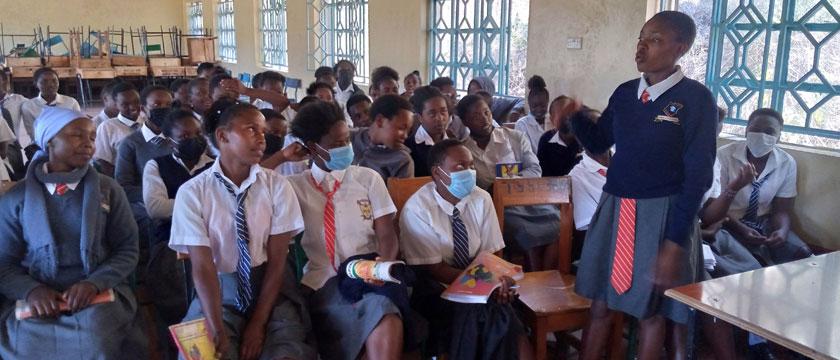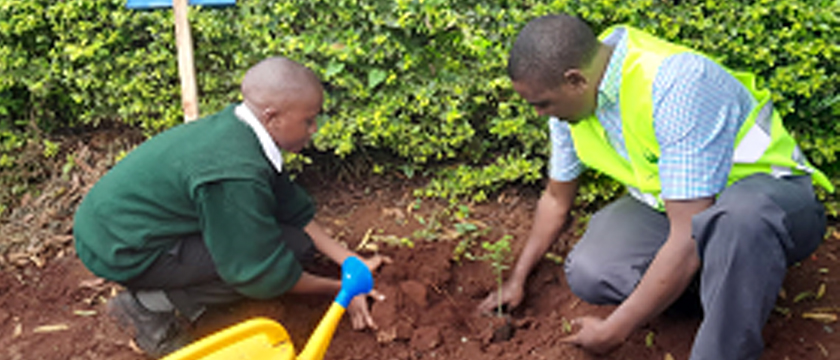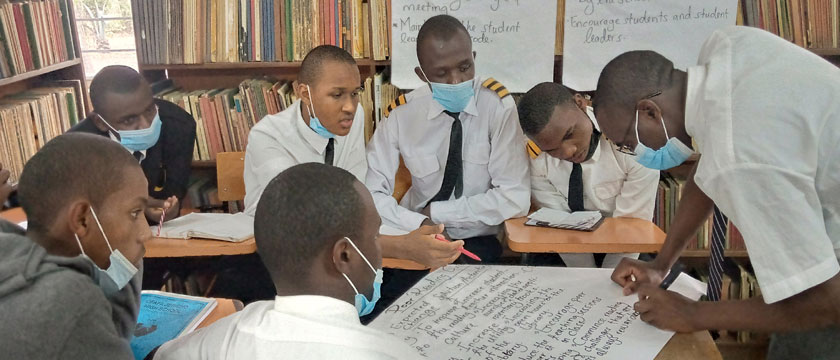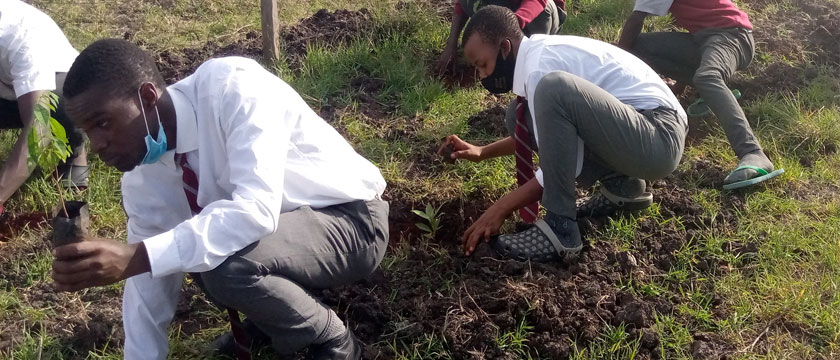In a concerted effort to promote virtue development, education for sustainable development and community engagement; the Iveti Zone Curriculum Support Officer (CSO) in Machakos County, in collaboration with the Centre for Character and Leadership (CCL) and East African Cables (EAC) spearheaded a tree growing drive. The EAC donated 1000 tree seedlings which were planted by teachers and learners in 11 Primary Schools as part of adopt a tree and tag a virtue initiative.
The ‘Adopt a tree and tag a virtue initiative’ is a service-learning best practice which is implemented by involving the learners to plant, adopt and tag the trees with virtues which they aim to nurture in life as the trees grow. Through this initiative, learners take on the responsibility of caring for their tree and the development of their chosen virtues as a ‘personal project’ under the guidance of a teacher or staff mentor.
Speaking during the occasion, the Iveti Zone CSO, Margaret Kiprono emphasized on the need of nurturing servant leadership virtues as she urged the Headteachers, teachers and students to internalize, practice and model virtues into their lives. Mr. Peter King’ori, Director of Character Education Programme, elaborated on how servant leadership virtues like noble purpose, gratitude, courage and empowerment shape the character of each student and the culture of the school. He encouraged the learners to practice and model the virtues into their everyday lives, illustrating their profound impact on individual character growth and community wellbeing.
Additionally, Peter Kiiri from East African Cables engaged the pupils in interactive discussion about the significance of trees. The students enthusiastically shared their thoughts, highlighting the crucial role trees play in purifying air, protecting the ozone layer, beautifying mother nature and promoting biodiversity.
The learners showcased their understanding of servant leadership virtues through recitation of poems that reflected their commitment on environment stewardship and individual development of good character.
“Our virtue is empowerment. To empower is to give permission to do something. For example, we are empowered to plant trees in order to curb climate change. So, our virtue is empowerment,” said one of the learners.
“Our virtue is courage. Courage is the ability to do something without fear. For example, we are determined to do away with the effects of global warming in the near future by planting more trees. So, our virtue is courage,” he added.
The launching of the tree growing event was hosted by Mr. Daniel Muthoka, headteacher of Kyamwee Primary School. Over 10 headteachers from Iveti Zone attended the event.
In conclusion, this collaborative effort between CCL, East African Cables, Zone CSO and local educational institutions in Machakos County exemplifies the power of collective action in nurturing virtues and restoring greener spaces in schools. By investing in education for sustainable development and character development, we nurture future generations of responsible citizens, contributing to a better future for our communities and the environment.

